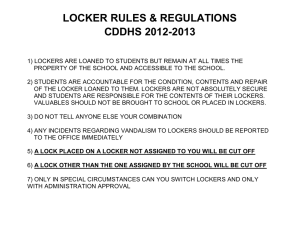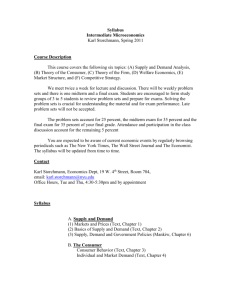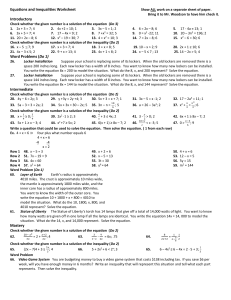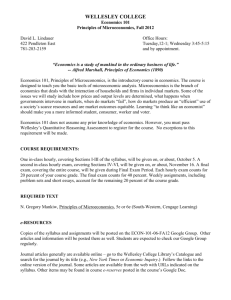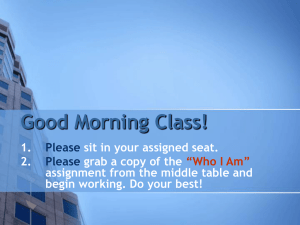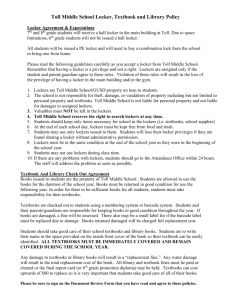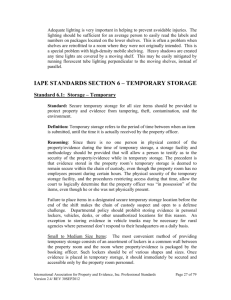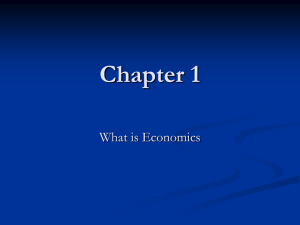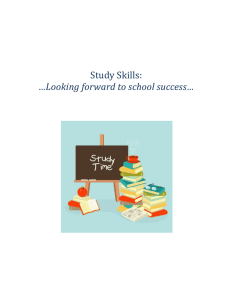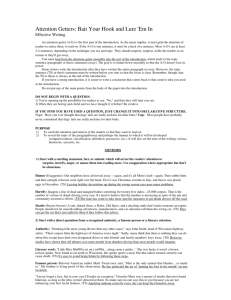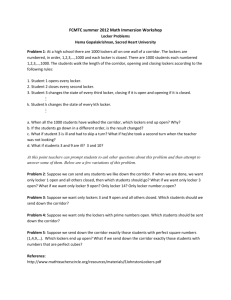ECO 110 – Introduction to Economics
advertisement
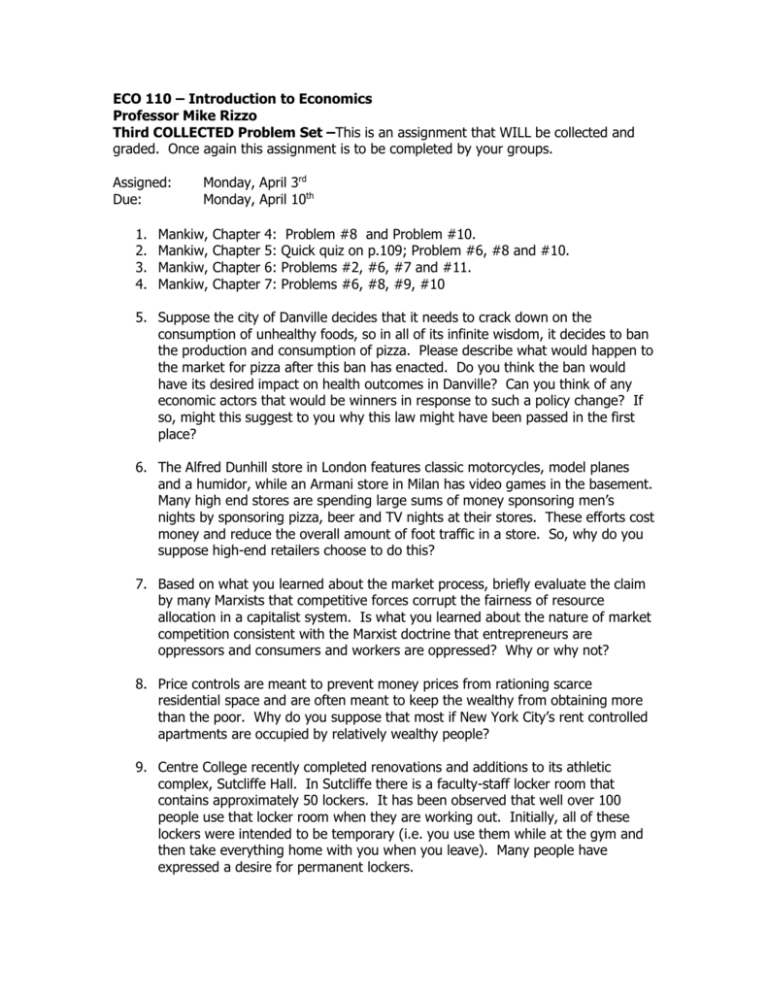
ECO 110 – Introduction to Economics Professor Mike Rizzo Third COLLECTED Problem Set –This is an assignment that WILL be collected and graded. Once again this assignment is to be completed by your groups. Assigned: Due: 1. 2. 3. 4. Monday, April 3rd Monday, April 10th Mankiw, Mankiw, Mankiw, Mankiw, Chapter Chapter Chapter Chapter 4: 5: 6: 7: Problem #8 and Problem #10. Quick quiz on p.109; Problem #6, #8 and #10. Problems #2, #6, #7 and #11. Problems #6, #8, #9, #10 5. Suppose the city of Danville decides that it needs to crack down on the consumption of unhealthy foods, so in all of its infinite wisdom, it decides to ban the production and consumption of pizza. Please describe what would happen to the market for pizza after this ban has enacted. Do you think the ban would have its desired impact on health outcomes in Danville? Can you think of any economic actors that would be winners in response to such a policy change? If so, might this suggest to you why this law might have been passed in the first place? 6. The Alfred Dunhill store in London features classic motorcycles, model planes and a humidor, while an Armani store in Milan has video games in the basement. Many high end stores are spending large sums of money sponsoring men’s nights by sponsoring pizza, beer and TV nights at their stores. These efforts cost money and reduce the overall amount of foot traffic in a store. So, why do you suppose high-end retailers choose to do this? 7. Based on what you learned about the market process, briefly evaluate the claim by many Marxists that competitive forces corrupt the fairness of resource allocation in a capitalist system. Is what you learned about the nature of market competition consistent with the Marxist doctrine that entrepreneurs are oppressors and consumers and workers are oppressed? Why or why not? 8. Price controls are meant to prevent money prices from rationing scarce residential space and are often meant to keep the wealthy from obtaining more than the poor. Why do you suppose that most if New York City’s rent controlled apartments are occupied by relatively wealthy people? 9. Centre College recently completed renovations and additions to its athletic complex, Sutcliffe Hall. In Sutcliffe there is a faculty-staff locker room that contains approximately 50 lockers. It has been observed that well over 100 people use that locker room when they are working out. Initially, all of these lockers were intended to be temporary (i.e. you use them while at the gym and then take everything home with you when you leave). Many people have expressed a desire for permanent lockers. i. Since locker space is a scarce resource, using what you have learned in economics, how would you recommend that Centre College allocate these lockers to the people that want to use them? ii. An economist here at Centre (yes, an ACTUAL economist) publicly declared that lockers should be allocated via a lottery or by a measure of frequency of use of Sutcliffe Hall. Evaluate these two mechanisms from an economic perspective. iii. Now, evaluate these two mechanisms from a moral perspective (in other words, is it really true that these methods are more fair than what your proposed solution would be?). 10. Why do you think that today in the United States the largest denominated bill is $500? The $1,000, $5,000 and $10,000 bills no longer circulate as money. 11. Would you be in favor of price-gouging legislation in the aftermath of a natural disaster? Why or why not? Questions on “Are We Scaring Ourselves to Death?” 12. How is it that well-intentioned public policies designed to reduce risk often make people LESS safe? 13. What might explain why the perception that crime is worsening is more widely held than the knowledge that crime has actually remained constant or is falling? In other words, who benefits from these perceptions being widely held? 14. To think about – is freedom worth some risk? Should you be “allowed” to take the risk of riding a bicycle without wearing a helmet? 15. Why would Congress create regulatory agencies that try to reduce risk to an impossible standard of zero? To think about - How come it is so difficult to convince them that they are committing statistical murder? To think about further – would you rather the FDA keep potentially lifesaving drugs off the market for years (sometimes decades) or have them brought to market but with the risk that “someone” might be hurt by them? 16. Explain the difference between positive economics and normative economics. 17. The magic of economics can be appreciated by the extraordinary degree of social coordination required to allocate scarce resources to competing uses. In a market economy, what is the mechanism that binds each agent together to promote this coordination? How does this mechanism work to ensure that Rizzo gets his coffee at Speedway every morning (in might help you to think about whether the Columbian coffee farmer, or the truck driver, or the coffee wholesaler care about me)?
